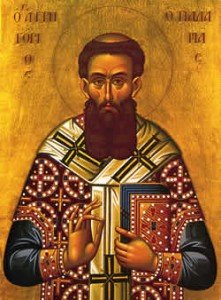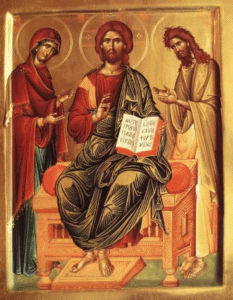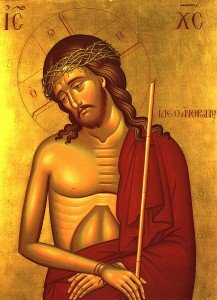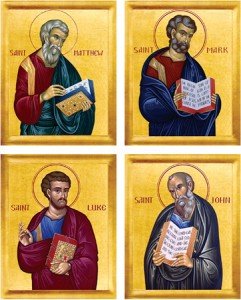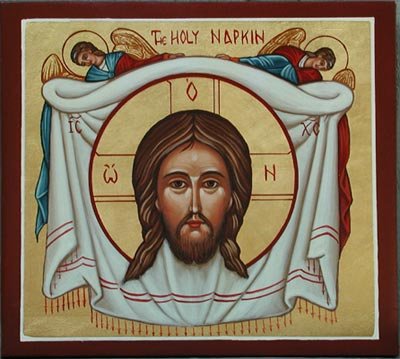Although we remember our Father among the saints Gregory Palamas on the second weekend of the Great Fast, our Gospel reading recounts the curing of the paralytic man at Capernaum, Jesus’ home after He left Nazareth. This story may refer to a single incident in Jesus’ ministry, or it may have been conflated from a miracle story and a pronouncement story by the association of forgiveness of sins with faith.
One of the difficulties with this story is the presentation of the Messianic secret. It does not seem that Jesus would have disclosed this and so it is a comment that the early Church combined with this story after His resurrection. Scholars believe it was probably added to highlight the significance of Jesus’ words. His words are healing to those who believe.
There is no doubt that the paralytic man and his friends were people who came to believe in Jesus and His teaching. They went to considerable trouble to come into Jesus’ presence. They thoroughly believed that Jesus could heal the man’s paralysis.
One of the things that I noted as I read this story was the love that the paralytic man’s friends had for him. They willingly went to great lengths – they actually climbed up on the roof of the house where Jesus was and lowered the man into the house – to bring their friend into Jesus’ presence. So faith in Jesus and love for one’s fellowman are the foundation of this story.
This story is coupled with St. Paul’s exhortation to faithfulness which is found in his letter to the Hebrews. He exhorts us to attend to what we have heard, namely that belief in the teachings of Jesus and faithful adherence to these teachings can, indeed, heal all of our discontent with life’s challenges. Indeed, as we think about Jesus and His teaching, we realize that the way He taught us to live brings the fullness of life which none of life’s challenges can destroy. If our spirit’s are paralyzed by the challenges of life, His way of living can bring healing. Of course we have to believe and have to, like the friends of the paralytic man, take chances and actually actualize our beliefs.
When you stop to think about it, today’s readings are wonderful in that they provide the encouragement needed to engage in the primary task of the Great Lent, namely personal transformation and change.

